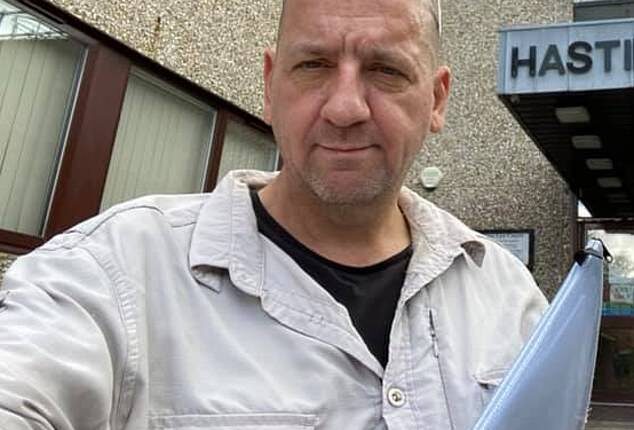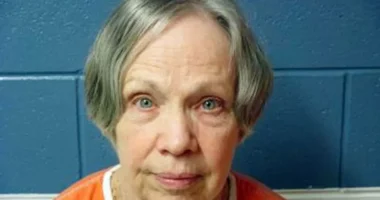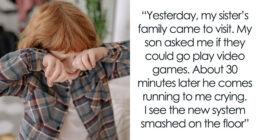A royal engraver and his wife who buried his father in the back garden in accordance with his final wishes are suing police after officers arrested them and dug up his body.
Pierre Frenette, 60, and his wife Donna are claiming they were wrongfully arrested after the death of Pierre’s father Peter Frenette, 80, in 2023.
Peter was diagnosed with prostate cancer that became terminal in September of that year, and at his request, his son and daughter-in-law took him from Hinchingbrooke Hospital near Huntingdon, Cambridgeshire to the home of his former wife, Sylvia, 79, to die.
The next day they took him to Pierre Frenette’s – who also goes by the name Peter – home and buried him alongside his father, and Mr Frenette’s grandfather, in the garden.
But two days later the couple claim armed police officers swooped on the house, arrested the couple and dug up Peter’s body, which would not be returned to them for six weeks.
Mr and Mrs Frenette were arrested on suspicion of concealing a body and held in custody for 36 hours.
They maintain they committed no crime as they were well within the five-day window in which deaths must legally be registered.
The couple are now suing the chief constable of Cambridgeshire Constabulary and three of its officers, and say they are still under investigation two years later.

Pierre Frenette (pictured), 60, and his wife Donna are claiming they were wrongfully arrested after the death of Pierre’s father Peter Frenette, 80, in 2023

Donna Frenette (pictured), a trained paramedic, administered morphine to her father-in-law on the day he died and said her profession meant she knew they had five days to register his death
Mr Frenette, an artist who has completed complex engravings on guns for the late Queen Elizabeth II and King Charles III, claims in court documents it was his father’s dying wish to be buried alongside his grandfather.
Mrs Frenette, who is a trained paramedic, told the Times they took her father-in-law from Hinchingbrooke Hospital after being told by staff there was ‘nothing more they could do’.
On the day of his death, the family doctor administered pain relief and informed the couple that Peter’s passing was ‘imminent’.
Mrs Frenette says she then administered a small dose of morphine, rather than wait for the arrival of a nurse, because her father-in-law was in intense pain.
He died a short time later at 3.20pm.
The next day the couple took the 80-year-old to their home and buried him that night alongside Pierre’s grandfather, Peter’s three Parson Russell terriers, Tuppence, Buble and Sykes, and his three-legged cat Trio.
‘Because of my job as a paramedic I knew we had five days to register the death,’ Mrs Frenette told the paper. ‘It was not a sudden death.’
Two days later, police arrested Mr Frenette’s mother Sylvia, 79, who suffers from Alzheimer’s, after she did not tell them where her former husband was.
They then swooped on the couple’s village of Hail Weston and raided their home – which the couple are claiming left neighbours concerned they were involved in ‘drugs or murder’.
The Frenettes state that police officers took mementos buried alongside Peter that still have not been returned.
They added Peter’s body was ‘very decomposed’ when it was finally returned to them for reburial six weeks later.
For their part, Cambridgeshire Constabulary state in their defence to the claim the family’s GP had made clear they ‘must call the surgery when Peter died’ and the force was contacted by a nurse who Sylvia refused to let into her home.
The force said: ‘Sylvia stated that Peter Frenette had died, but there was no record of that death being registered.
‘Either Peter was alive, in which case he would have been in a great deal of pain and needed assistance, or he had died but the same had not been registered as the law required.’
Court documents state the couple were originally arrested on suspicion of preventing a lawful burial, concealing a death and obstructing a police officer. They were also arrested the next day for the alleged possession of a firearm and possession of cannabis after a search of their home.
The Frenettes say the case is still ongoing two years later and they have not been charged with any offences.
In court documents setting out plans to claim ‘substantial damages’ for trespass, false imprisonment and emotional distress, they said: ‘We are unable to grieve our loss. What Cambridgeshire police have done to us is barbaric. The foundation of our lives has been rocked to the very core.’
The couple plan to represent themselves under the ‘natural common law of the land’ at the Central London county court.
An eight-day trial is scheduled for November 2026.
Cambridgeshire Constabulary has been contacted for comment.









